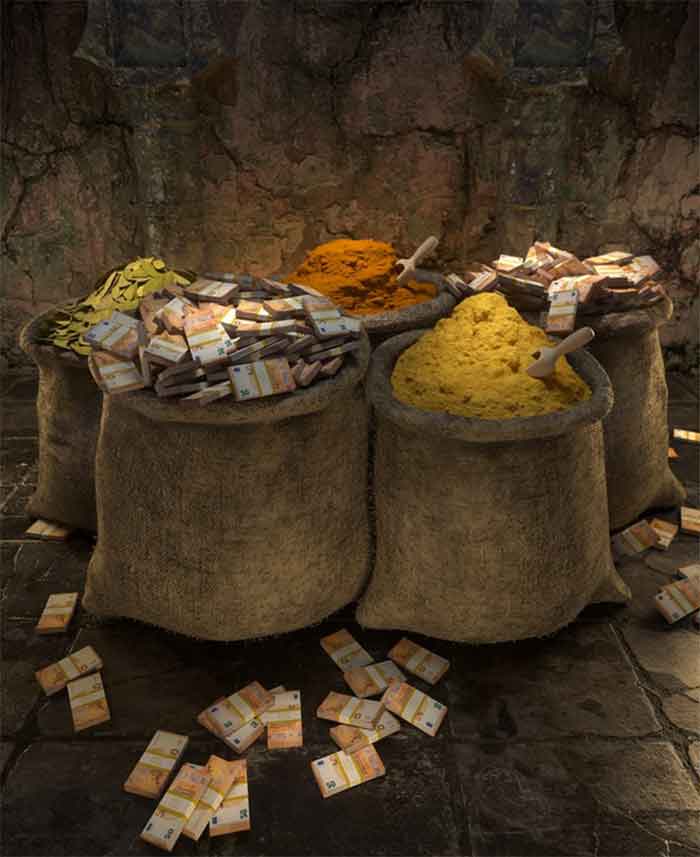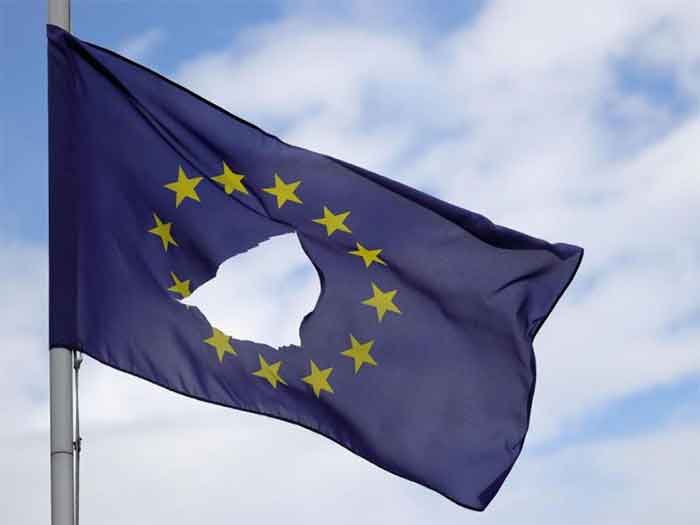
Rational choices in any part of the world mean choices made by people and governments of the region for pursuing welfare and peace of the region within a framework of welfare and peace of the entire world. In other words, while it is understood that welfare, peace and safety of the people within the region would of course be of the greatest importance for them, this should also be integrated with the welfare, peace and safety of the entire world as no one sits alone in an increasingly globalized world and any people can best protect their safety and welfare by remaining concerned about the safety of the entire world. This is so obvious in the context of environmental issues like climate change, for example, as also in the context of the arms race.
It is important to emphasize this second aspect of rationality, regarding integration with the welfare of the entire world, keeping in mind how often very narrow self-seeking gets wrongly promoted in the name of rationality.
Few regions of the world appear to be as well-endowed as Europe with the capacity for such rational decision making. This can be stated in the context of the high levels of education and the wider space for diverse points of view as manifested in the vigorous functioning of multi-party democracies. The ability to create a union of many countries, some of which had been much in conflict earlier, has also been regarded on the whole as an assertion of rationality and maturity which could overcome several hurdles.
Despite this, however, Europe appears to be caught today in a peculiar crisis situation when it appears unable to protect its welfare interests and also remain on the right side of protecting world peace and safety. This is a matter of great concern for Europe as well as for the entire world.
While some of these concerns relating to meeting energy needs and to Ukraine policy are quite recent, these also remind people of some previous instances when rational decision making took a back seat. The highly damaging and irrational support provided by the British Prime Minister Tony Blair to Iraq invasion, leading to the destruction and destabilization of a country and the death and ruin of several hundred thousand people, directly and indirectly, is one such glaring example. At that time Tony Blair had provided such non-rational and unthinking support to the USA led invasion that he was widely referred to as Bush’s poodle within his own country.
Even earlier Europe’s leading countries had colluded in the USA-led destruction and disintegration of the former Yugoslavia, raising serious questions about well-informed decision-making in Europe even to protect its own. Here we could see that even on matters within Europe, there was highly questionable and non-rational conduct by leading European countries and even the supposedly independent media played a big role in spreading lies and half-truths, making it difficult to sort out issues peacefully.
Still earlier, when there were suppressions of left groups within countries like Italy, France and Greece, who had been a part of the brave resistance against the Nazis, several governments had colluded in this.
After the disintegration of the USSR, when violating promises NATO started expanding eastwards and subsequently came very close to encircling Russia, again Europe colluded entirely in this, despite serious threats to world peace and European peace related to this. Senior leaders of leading European countries stated themselves that they merely used Minsk accords to give Ukraine time for arming itself adequately (to face Russia).
When Norm Stream was detonated and the Hersh revelations had already been widely discussed, governments and even the media appeared to be avoiding the most likely truth all the time.
This brings us to the present situation where an increasing number of European people feel that in terms of meeting their energy needs they have been denied the proper choices, and probably a lesser but nevertheless significant number of people also feel (but may not assert) that the path of ceasefire and peace is the best way forward for resolving the Ukraine crisis (and not the path of endlessly sending more and more weapons to Ukraine).
What is common to all these situations which represent important examples of failure of European policy is the fact that all these policies involved the felt need to go along with the role expected of Europe by the USA. Hence it appears that if Europe is to avoid such policy failures in future and to instead go with rational decision making, then this is one relationship that should be sorted out—Europe should be able to act independent of any pressures or expectations from the USA, regardless of the military bases and even nuclear weapon deployments the USA has in many European countries and despite the fact that most European countries are NATO members.
When Emmanuel Macron, the President of France, said while returning from a recent tour of China that European countries should not be like vassals of the USA, should not be dragged into a war with China and should be able to exercise strategic autonomy, there were voices of protest within Europe but also of support. It is likely that the support for this view is wider than what we see being expressed more openly. While speaking about this wider support, European Council President and former Prime Minister of Belgium Charles Michel stated, “quite a few really think like Macron.”
More provocative although less reported was the comment of Prof. Yanis Varoufakis who as former finance minister of Greece at the time of a serious economic crisis had won a lot of respect for standing up to the unhelpful policies of the big bosses of the European Union. He stated, “It’s not that the European Union is a vassal of the US. It is worse than a vassal. Vassals had a degree of autonomy under feudalism. We are serfs. We are not even serfs, who had certain rights under feudalism.”
However if words like vassal or serf are to be used for leading European countries or for the European Union, then what really would be the status to which Ukraine is being reduced, at least in relation to some leading European countries, vassal of vassal or serf of serf?
Will Europe like to be a part, a close ally of any future war of the USA against China? Or will it like to be a US ally in any future war which is as unjust and destructive as the invasion of Iraq was? Most people in Europe may not at all be happy with this, but certain sections, for example big capitalists or arms industry or politicians close to these sections, may opt for this for their narrow reasons. So despite the majority of people not being in favor of this, Europe may once again become closely involved in highly destructive wars.
After all the huge destruction of the first two world wars which were centered in Europe, no one in Europe would like the possibility of a third war centered again in Europe. Nevertheless, the fact remains that eminent experts have been warning about the Ukraine conflict escalating to a nuclear war and the third world war.
The most important lesson of history in Europe is that aggressive wars eventually turn out to be self-destructive too. This lesson should not be ignored or neglected.
From the 16th to the 20th century Europe was central to the most destructive invasions and wars of world, wars much more destructive than what the worst invaders of earlier centuries had unleashed, linked also to worst forms of plunder and exploitation extended over very long years. The overwhelming majority of native people of entire continents of Americas and Australia were decimated. One of the most barbaric and largest slave trades was unleashed. The march of progress was rudely shattered across vast nations, including very ancient civilizations, to plunge them in war and famine. The rush and fierce competition for plundering distant lands ultimately ( and inevitably) led to internal clashes within Europe, plunging the continent into two world wars, inflicting untold destruction and distress on its most powerful nations, as well as on much of the remaining world.
However even while departing from several colonies Europe inflicted heavy, avoidable destruction on many of them. While post-war years were rightly devoted to reconstruction, increasing internal cooperation and economic progress, several European countries also became willing members of the dominating neo-colonial order which continued to exploit the Global South badly in matters relating to trade, debt and much else. Leading European countries continued to be part of new world boss USA’s invasions and democracy- toppling projects, or at least did nothing to oppose these. Hence some leading European countries had an important role in the destruction of countries like Iraq, Afghanistan and Libya, or in the toppling of democratic governments in several countries.
Isn’t it time now for Europe to try to leave behind this past and seek a different future by integrating an enlightened understanding of its self-interests (safety and well-being of its people) with peace, justice and environment protection concerns of entire world. It is right of Macron and his friends to ask for more strategic autonomy, but more autonomy for pursuing which path? Clearly the answer should be—for pursuing a path which integrates well-being of people of Europe with peace, justice and environment protection in entire world.
In many ways Europe is still a long distance away from such a path, but if at least internal broad consensus can be created within Europe regarding this, this itself will be an important step forward for peace, justice and environment protection at world level. Instead of the USA dragging Europe towards war, the future should be for Europe to push the USA towards peace—a role which only Europe can perform with its special ties with USA, people to people, not just government to government. And this peace should include peace with Russia and China.
A leading politician of Europe recently said that in this world only Europe has been able to create a garden, the rest is a jungle. If he was to honestly dig up a part of his garden, he would find it to be fertilized by the blood and bones of millions of innocent people who became victims of colonial and imperialist wars. The most important aspect of European history very less taught in its schools is that for nearly 500 years Europe’s settlers, invaders, colonialists and imperialists became the most violent killers and plunderers in various parts of the world (in the name of spreading civilization) and this violence ultimately led to the self-destruction (as well as continuing destruction of others) as seen in the two world wars.
The big question now is whether Europe will continue to remain on the path which can, as several security experts have warned, lead to the third world war and nuclear war, or will it choose to be firmly on the side of peace. Clearly Europe should firmly and bravely assert itself to choose the path of rationality which integrates the peace and welfare of its own people with the peace and welfare of the entire world.
Bharat Dogra is Honorary Convener, Campaign to Save Earth Now. His recent books include Planet in Peril, A Day in 2071, Protecting Earth for Children and Earth without Borders.












































